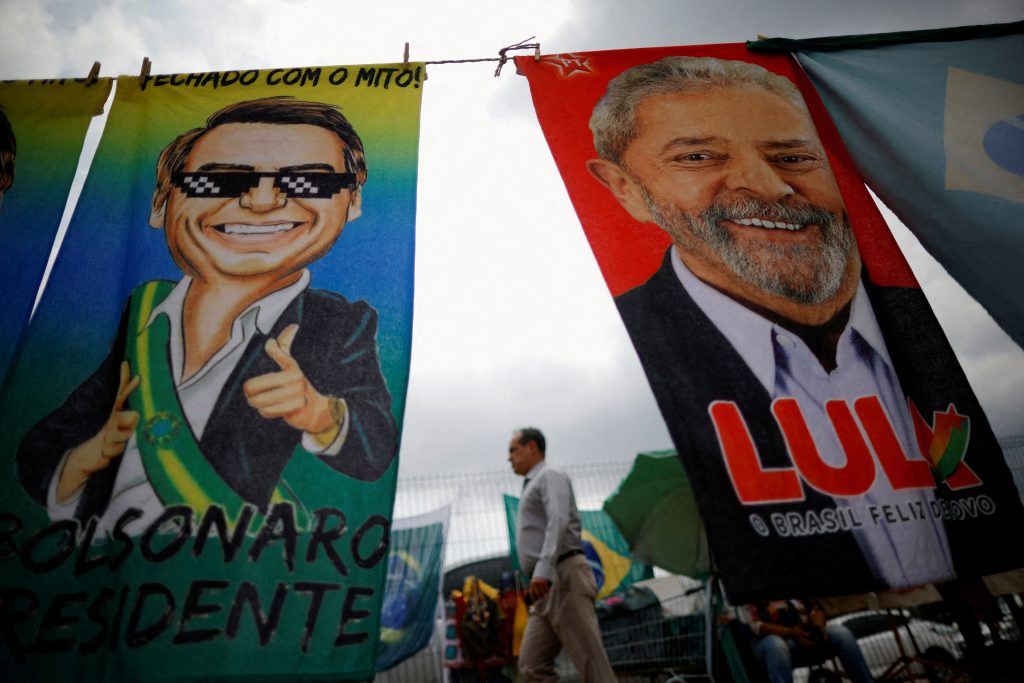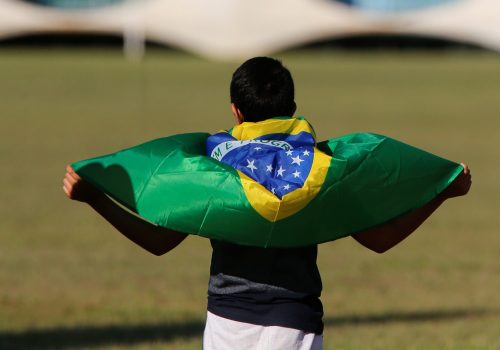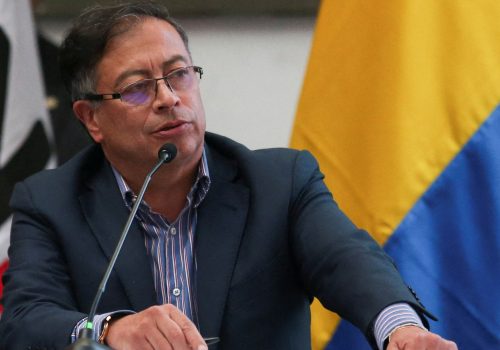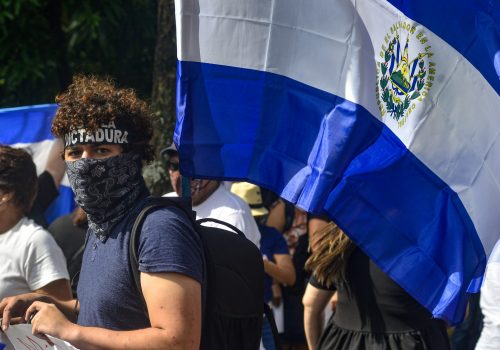And then there were two. On Sunday, Brazilian voters sent left-wing former President Luiz Inácio Lula da Silva and right-wing current President Jair Bolsonaro to a runoff to determine who governs Latin America’s largest country for the next four years. The results—Lula earning about 48 percent to Bolsonaro’s 43 percent and other candidates in the low single digits—set up a four-week sprint to the finish and a test for Brazil’s democracy. To make sense of the results and fill us in on what’s next, we turned to our top Brazil and Latin America experts.
What do the first-round results, with Bolsonaro closer to Lula than polls had indicated, tell us about the runoff?
If there is a winner from this first round of presidential elections in Brazil, it is Bolsonaro. Polls indicated that Lula could get close to winning in the first round by securing 50 percent of the vote. Not only did he not—which is not necessarily a surprise—but Bolsonaro had higher percentages than some may have anticipated. In addition to the presidential race, Bolsonaro’s former ministers and key supporters were successfully elected. Marcos Pontes and Damares Alves were elected senators to São Paulo and the Federal District, respectively; General Eduardo Pazuello was one of the highest vote-getters among federal deputies for the state of Rio de Janeiro, and Tarcísio de Freitas, although not elected, is leading heading into the second round for governor of São Paulo against Fernando Haddad from the Workers’ Party—ending almost thirty years of the Brazilian Social Democratic Party’s reign in the state. These results may ignite more energy for Bolsonaro’s supporters, increasing his chances on October 30. Lula will likely appeal to Simone Tebet of the Brazilian Democratic Movement for support after she finished in third place with about 4 percent of the vote. But if Lula is elected, with these newly elected Bolsonaro supporters in Congress, it could be challenging for him to pass legislation and govern effectively.
—Valentina Sader is an associate director and Brazil lead at the Adrienne Arsht Latin America Center.
What are the primary differences between the two candidates’ platforms?
We’ll know the night of October 30 who will be the next president of Brazil. Even though Lula received nearly 5 percentage points more votes tonight, that is by all means not an indication that he will have the same margins later this month. With a highly contentious electoral cycle, which will become even more polarizing in the next few weeks, Bolsonaro and Lula will each take extra steps to show differences in how they would govern.
On the economic front, Bolsonaro proposes a continuation of his economic priorities, doubling down on a business-friendly, open-market economy and diminishing the size of the state through privatizations. Lula’s campaign has focused on how he would bring back the prosperous economic times under his watch when in office. His economic approach will aim to tackle hunger and poverty levels.
For both, regardless of who wins on October 30, the priority should be on fostering economic growth and sustainable development, while also maintaining fiscal responsibility. Guaranteeing a stable political environment and an attractive business climate will be critical for attracting foreign investment and advancing long-term prosperity.
—Jason Marczak is the senior director of the Adrienne Arsht Latin America Center.
How would each candidate likely work—or not work—with the United States, Europe, and Latin America and the Caribbean once in office?
If the polarization that marked this electoral cycle is indicative of the next four years, what’s clear is the extremely different ways in which Bolsonaro and Lula would govern—and foreign policy is no exception. International affairs were not a central topic in this year’s debates, and the lack of attention to the implications of global developments is a testament to the inward gaze of Brazil in recent years. Don’t expect that to change as the campaigns dig in deeper for the second round.
Looking back to the prosperous economic times under his watch, Lula would again prioritize cooperation across the Global South and would work to regain the prominent role Brazil once had internationally. Lula would often prioritize a mutually beneficial relationship with the United States and Europe, but, as during his previous presidency, moments of tension are likely to arise. Common ground would certainly be found when it comes to adopting more ambitious climate commitments.
Bolsonaro would continue to lead Brazil’s foreign policy with an economic focus, prioritizing steps focused on an open-market economy. In Latin America and the Caribbean, where recent elections have shifted the political tendencies to the left, Bolsonaro’s right-leaning approach would be met with skepticism from some of the region’s newest leaders. Bolsonaro would have to either compromise to find common ground regionally or risk being an outlier. The next president must align his foreign policy to meet domestic demands and international challenges.
—Jason
Bolsonaro has already sowed seeds of doubt in Brazil’s electoral integrity. What can we expect to see from him during this runoff, and what does that say about Brazil’s democratic trajectory?
Bolsonaro’s questioning of the political system has ignited democratic institutions in Brazil to double down on their efforts to raise awareness and regain public confidence in their proper functioning. The United States and the international community have also recommitted their trust in Brazil’s electoral system and in the legitimacy of results. Sunday’s first round was a testament to how the Electoral Superior Court, among other institutions, have been getting ahead of any potential crisis by tackling disinformation and bringing in international observers at polling stations. These efforts will continue in the runoff. As democracies across the world experience declines in democratic freedoms and questioning of democratic principles even beyond elections, this is an opportunity for Brazil to strengthen its democratic institutions to ensure an even more robust democracy.
—Valentina
Further reading
Thu, Sep 15, 2022
Democratic institutional strength before and beyond elections: The case of Brazil
Issue Brief By Valentina Sader
Brazil—Latin America’s largest economy and the fourth-largest democracy in the world—will elect its next president, governors, congress, and state-level assemblies in October 2022. This is one of the most momentous elections in recent years, a result of the inflection point that Brazil faces.
Fri, Aug 5, 2022
Colombia’s first leftist president is taking office. What should the US expect from him?
New Atlanticist By
We reached out to our top Latin America minds to break down what a Gustavo Petro presidency will mean for this longstanding strategic relationship.
Wed, Dec 8, 2021
Democracy in Latin America is under threat. These two summits are a chance to fix it.
New Atlanticist By
As nations across the Americas come together to address their shared shortcomings, here's a roadmap to help bolster their democratic institutions.
Image: A man walks past presidential campaign materials depicting Brazil's former President Luiz Inacio Lula da Silva and and President Jair Bolsonaro in Brasilia, Brazil, September 23, 2022. (Photo by Adriano Machado/Reuters)



